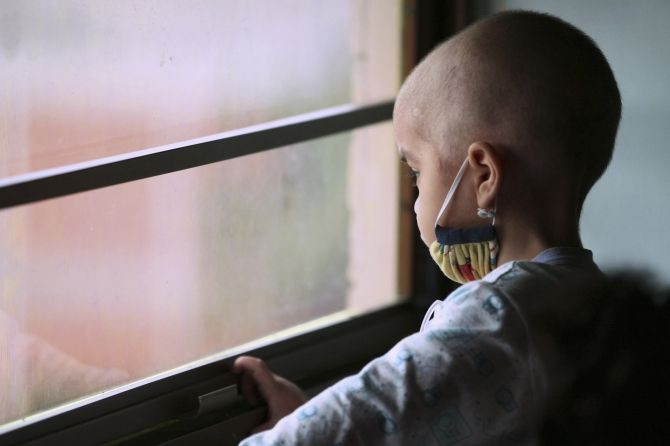Most Common Childhood Brain Cancer Decoded, Hope for Customized Treatments

The genetic mutation responsible for the most common type of childhood brain cancer has been discovered. The study will advance cancer treatment to suit the needs and requirements of the patient.
The cancer called medulloblastomas affects the cerebellum- the part of the brain that controls motor functions and balance. It occurs in children before age five and it is more common in more boys than girls.
In the study, the researchers have described the cancer at molecular level. The study says that the medulloblastoma is a cluster of cancers that are caused due to changes in some common biological pathways. The actual changes, they say, varies from tumor to tumor.
"We tend to treat all medulloblastomas as one disease without taking into account how heterogeneous the tumors are at the molecular level. This paper represents a finer-grained view of the genetic landscape of these tumors and provides us with some leads on how to develop new therapies," said Yoon-Jae Cho, MD, an assistant professor of neurology and neurological sciences at Stanford and the senior author of the present study.
For the study, researchers extracted DNA samples from 92 patients from their tumor and blood samples. Researchers then matched DNA from the tumor to that of blood samples. They found 12 significant mutations that occurred commonly in the cancer. Of these 12, few have previously been linked to types of brain cancer. Some new mutations were found like the one in an RNA helicase gene called DDX3X.
Study provides hope for newer customized cancer treatments
"For the first time, we'll be able to classify and treat medulloblastoma based on molecular typing, providing the best therapy with the fewest long-term consequences," Scott Pomeroy, MD, PhD, Neurologist-in-Chief at Boston Children's Hospital and one of the study authors.
About 250 children in the U.S are diagnosed with medulloblastoma each year. Treatments include removal of tumor, chemotherapy and radiation. According to researchers, certain variants of the tumor are particularly hard to treat.
"We now understand that there are certain tumors with particular genetic signatures that are really resistant to standard treatments," Cho said.
Researchers say children diagnosed with medulloblastoma must undergo genetic characterization of the tumor. This will help cure the cancer effectively as tailoring treatments that target particular cancers can lead to better results. Currently, treatments available for this tumor increase the probability of living but have serious side-effects like causing long-term intellectual disabilities.
"Our plan is that within the next one to two years we will be able to offer kids a new set of compounds that have a clear biological rationale based on our genomic studies. We want to make sure we're being careful of what we move forward with, but at the same time, for some of these kids we don't have many, if any, effective and durable treatment options," Cho added.
The study was published in the journal Nature.
Published by Medicaldaily.com



























